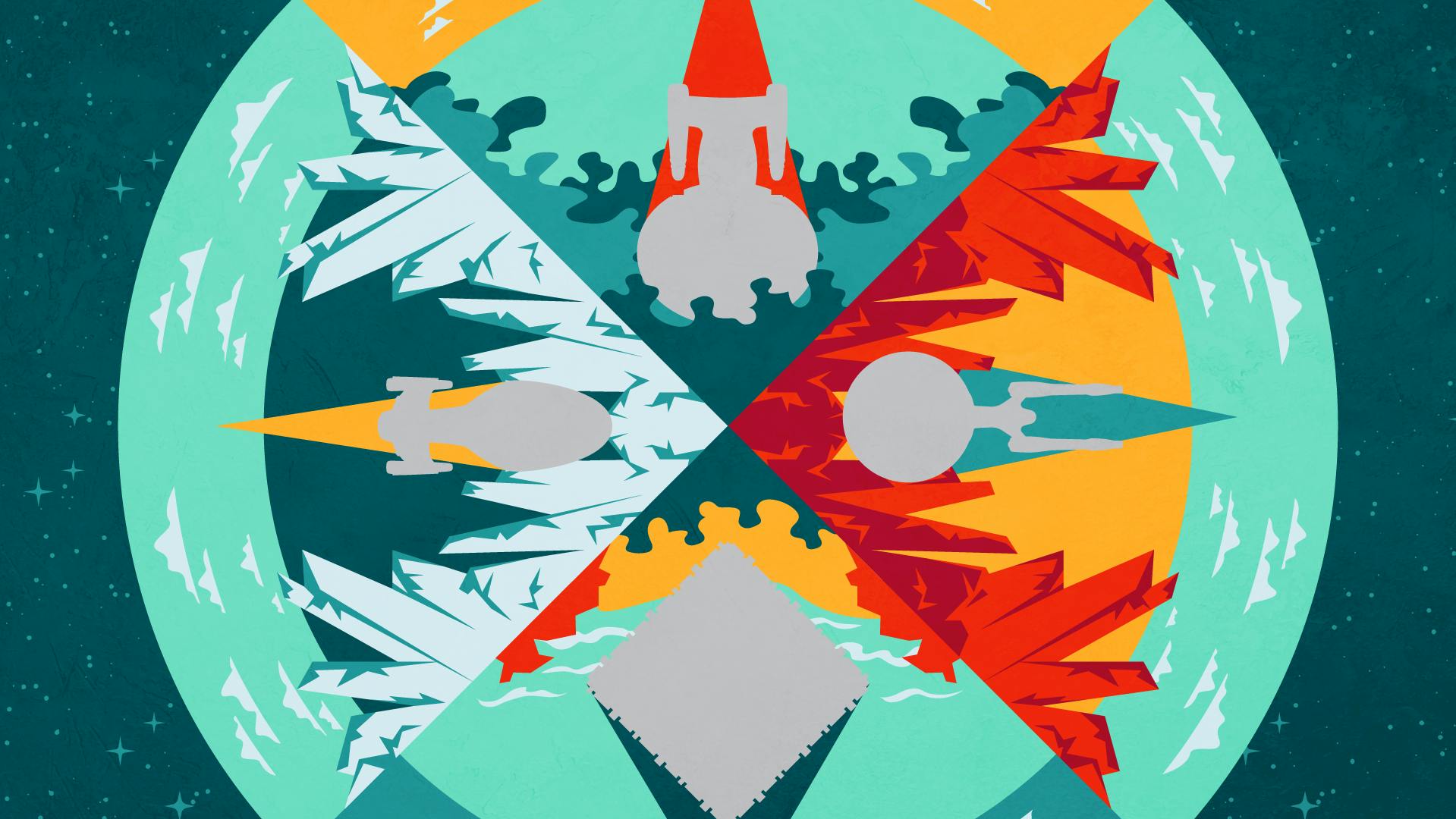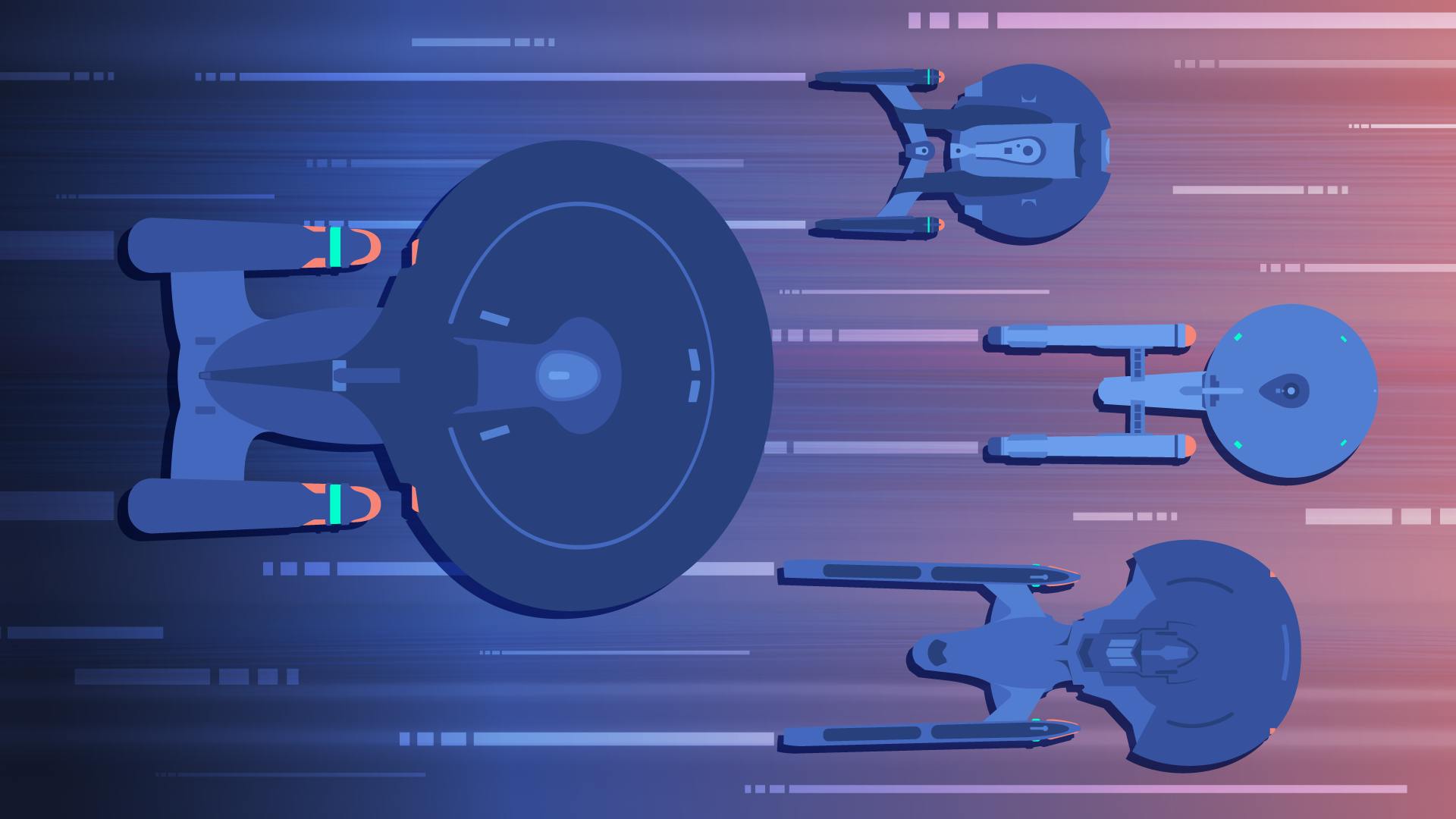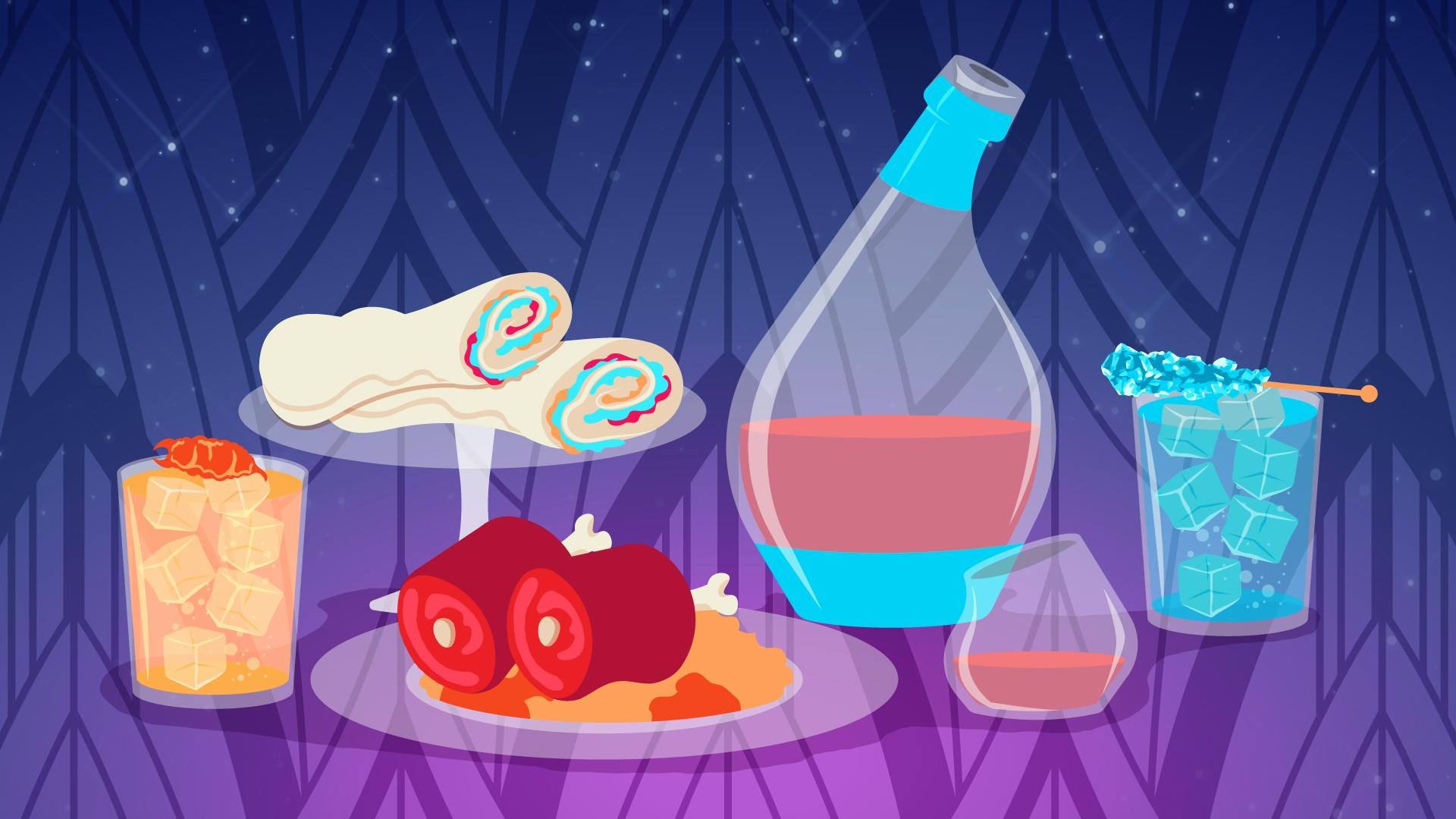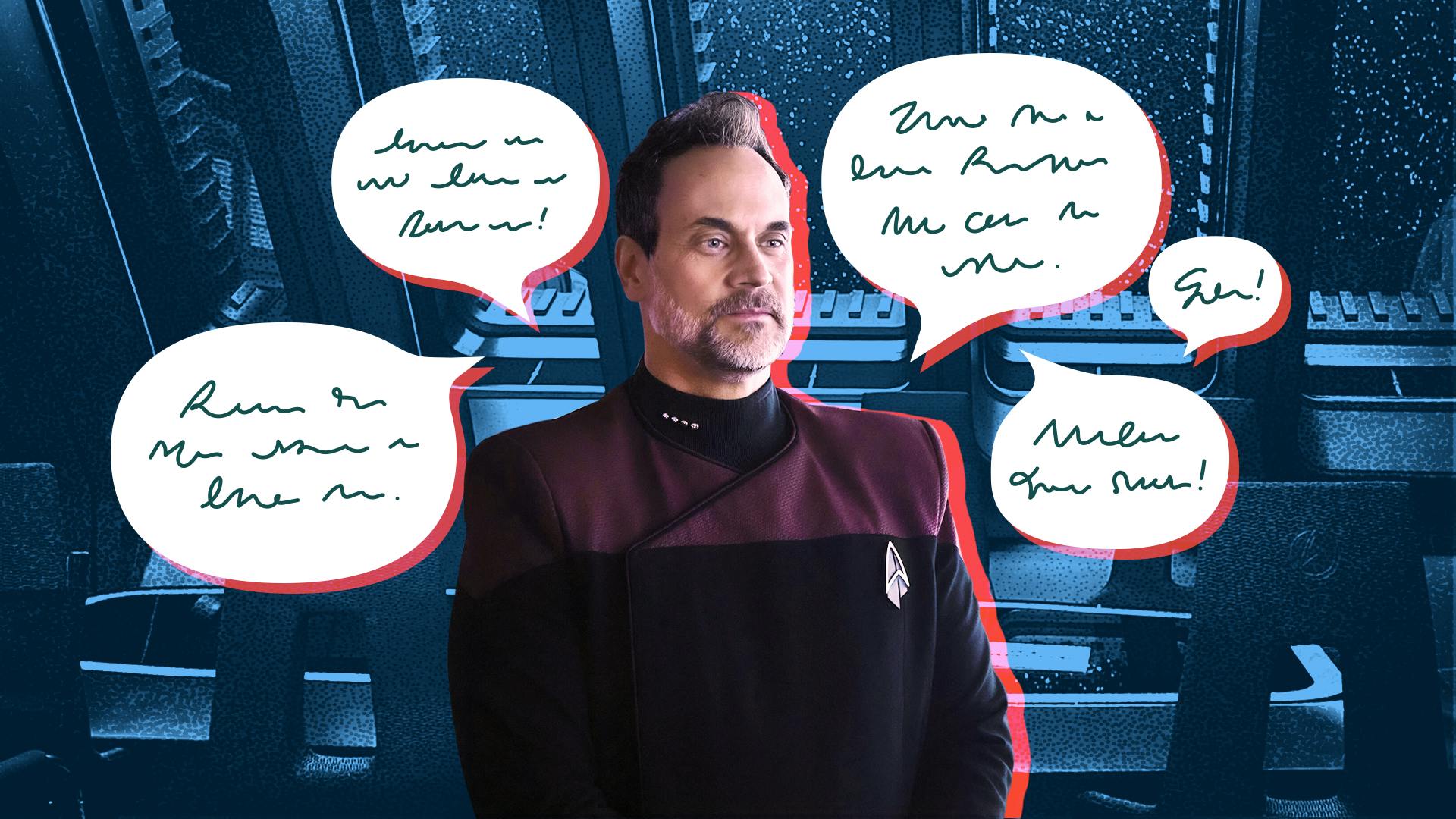Published Jun 16, 2023
Lessons Learned from Liam Shaw
Despite being Starfleet’s biggest curmudgeon, there's value to be gleaned from this captain.
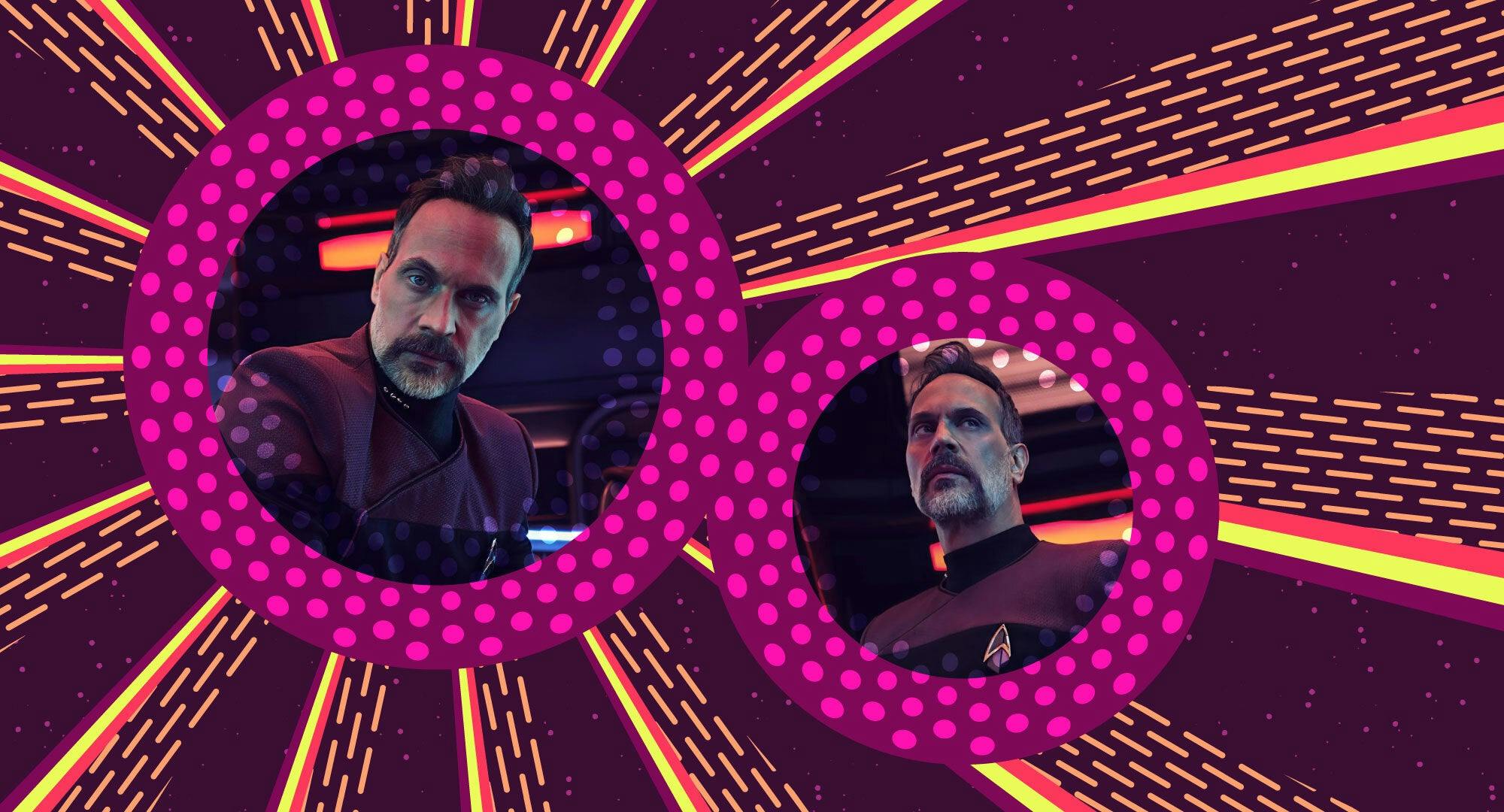
StarTrek.com
You must have heard about the Battle Of Wolf 359.
Captain Liam Shaw
Let me be perfectly blunt. Liam Shaw was a jerk.
Introduced to audiences in the third and final season of as captain of the U.S.S. Titan-A, this former galactic grease monkey was brash, brazen, and more than a little overbearing. In fact, so irritating was his black and white by-the-book mentality that I soon found myself wishing he’d end up phaser fodder before too long. And that was even before he assigned two of my childhood heroes to the indignity of sharing a bunk bed. Whether it was the subtle delight he took in informing Will Riker that he had purged the ship of his jazz library, or the constant barrage of sarcasm he seemed to spew at every given turn, I quickly began to loath Captain Liam Shaw.
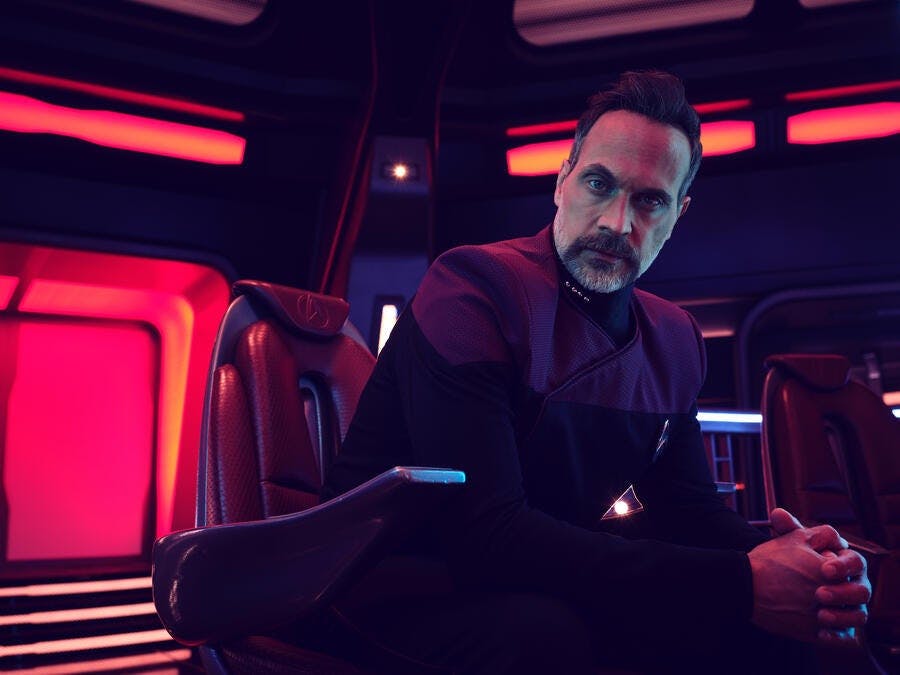
StarTrek.com
However, for all his irksome idiosyncrasies, by the time all was said and done, I just couldn’t help but root for the guy. In fact, following his last stand against the Borg, that damaged “dipshit from Chicago” forever cemented himself as one of the finest commanding officers to come out of Starfleet. In addition to being one of the most interesting characters to be birthed by the franchise as a whole. At least if you ask this writer.
, I stated that, while they may not be perfect, the captains of Starfleet oftentimes offer up valuable lessons on a variety of different subjects ranging from bravery to selflessness. Does such a lesson lie with Liam Shaw? A man who not only openly admits to being a jackass, but scoffs in the face of heroes with an attitude so arrogant you desire nothing more than to see him pushed through an airlock and sucked out into the Ryton Nebula each time he opens his mouth? Indeed it does!
Let us begin with a look back at Shaw’s haunting account of the .
Star Trek: Picard - Battle of Wolf 359
Dredged up over drinks in the Season 3 episode “,” it is here that we learn not only of the man’s terrifying run-in with the Borg while serving as an engineer aboard the U.S.S. Constance, but of the driving force behind his unpleasant demeanour. A traumatic battle described by the shell-shocked Shaw as though “space itself was burning,” it is soon revealed he has spent years grappling with survivor’s guilt after being ordered to take up one of the 10 seats in the ship’s only remaining life pod. At this time, there were over 11,000 individuals making up the crew of the U.S.S. Constance. So, why him? What made him so special? Why was he worth saving above the rest? Add to this the fact that he blames the recklessness of Jean-Luc Picard and the Enterprise crew for the creation of Locutus and the death of his friends on the Constance in the first place, and it’s easy to see why the Titan’s commanding officer was, to quote Will Riker, “not a friendly face” to encounter most of the time.
That said, if this is not one of the most realistic and emotionally charged depictions of PTSD to come out of the Star Trek universe, I have no idea what is. Sure Shaw was a jerk. But, perhaps he had the right to be. He had, after all, survived a truly harrowing experience. One he had only escaped due to random selection. Had his lieutenant made a mistake? Was there someone perhaps better qualified to take his place within that life pod? It was a question that had plagued Shaw for years. One that he would never get the answer to. Thus, he was forever cursed to go through life bearing a pretty sizable burden. One made all the more difficult to carry as the lives of 11,000 colleagues weighed heavily upon his conscience day after day.
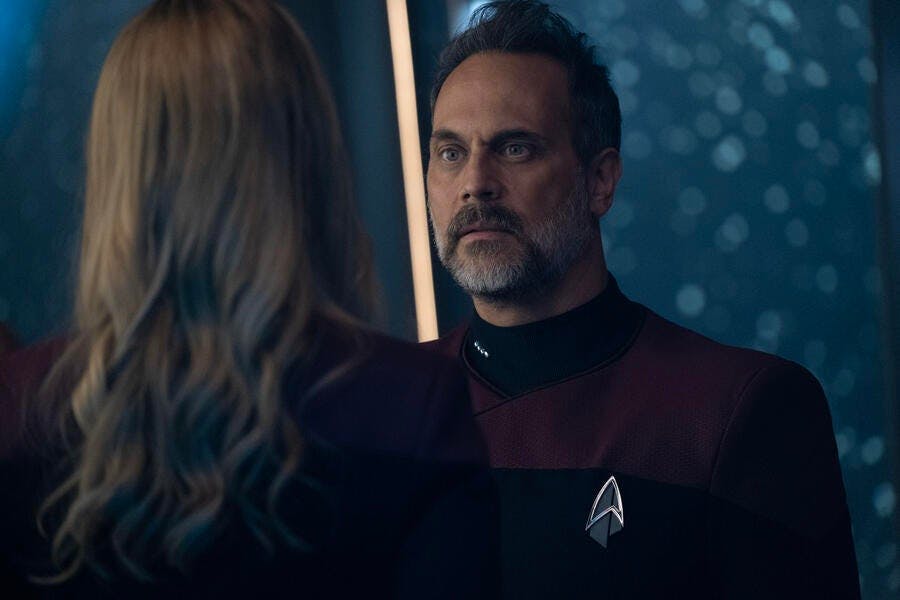
StarTrek.com
Despite this, there is much that can be learned from the example of Liam Shaw. Regardless of his prickly exterior, coupled with the emotional torment roiling about within him, there is little denying that the man was still a very capable captain with plenty of redeeming qualities.
For one thing, this was a captain who cared deeply about the safety and well-being of his crew. When Seven of Nine, who served as Shaw’s second-in-command aboard the Titan, looked to use their ship to save Picard and Riker from Vadic, Shaw demanded that the order be belayed. Despite protests, he refused to endanger the lives of the 500 people aboard the Titan in exchange “for two relics who think that a couple brass medals make them golden boys.” Granted, this choice was no doubt partially made due to Shaw’s disdain for the two men and the role they played in his past, but there is also little denying that his by-the-book approach to leadership and the belief that the needs of the many outweighed the needs of the few also played a large part in influencing his final decision on this matter. Further proof of the value Shaw placed on life is seen when he orders all lifeforms aboard the S.S. Eleos XII be beamed to the Titan after the Phoenix-class ship came under attack. Although far from the biggest ship in the fleet, and feeling the need to sarcastically compare the Titan’s primary function to that of a hotel at the time, Shaw still looked to intervene and save as many lives as possible – doubtless in honour of those whose lives had been lost at the Battle of Wolf 359.
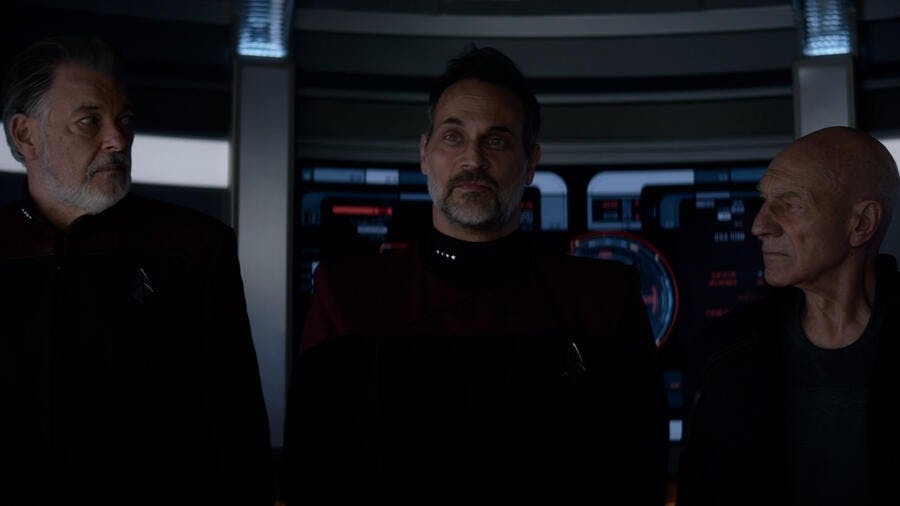
StarTrek.com
Secondly, Shaw was also quite knowledgeable. When it became known that a Changeling had infiltrated the Titan, Shaw became somewhat of an in-house expert on the subject. Familiar with the physiology and behaviour of the species, it was this knowledge that allowed Seven and her crewmates to get the upper hand on their uninvited guest and uncover a much larger plot that permeated to the very core of Starfleet. Had it not been for Shaw’s comprehension of the “walking, talking clay dough,” their receptacles, and their “resi-goo,” it is entirely possible that the final season of Star Trek: Picard would have turned out very differently. Yes, Shaw’s knowledge in this area not only helped save all of the lives aboard the Titan, but preserved the very future of Starfleet itself. Additionally, the man’s mechanical know-how would also come in quite handy during an attempt to exit the Ryton Nebula. Heading to Engineering, this decorated commander got back to his roots and used his skills to disengage the nacelle covers so that the Titan could ride a bio-electric wave back out into open space. With Seven watching his back, Shaw was able to complete the job and the crew was able to escape. Again, had it not been for the knowledge and know-how of the blunt, outspoken Shaw in this instance, things would have turned out very differently for our heroes indeed!
Finally, Shaw showed himself to be self-sacrificing. Once again looking to embrace the whole needs of the many philosophy, in a way that I am certain would make even Spock himself grin from pointy ear to pointy ear, this truly complex captain proved himself to be just as brave and honorable as the countless commanding officers who came before him. Determined to aid the reunited crew of the Enterprise in their escape against the Borg, Shaw nobly sacrifices himself in a firefight against assimilated crew and allows the beloved TNG stalwarts to get away. As if this is not enough, he further redeems himself for a season’s worth of disrespect towards Seven of Nine in his final moments, thus rising above the long-standing trauma of the past to become something more – one of Starfleet’s finest.
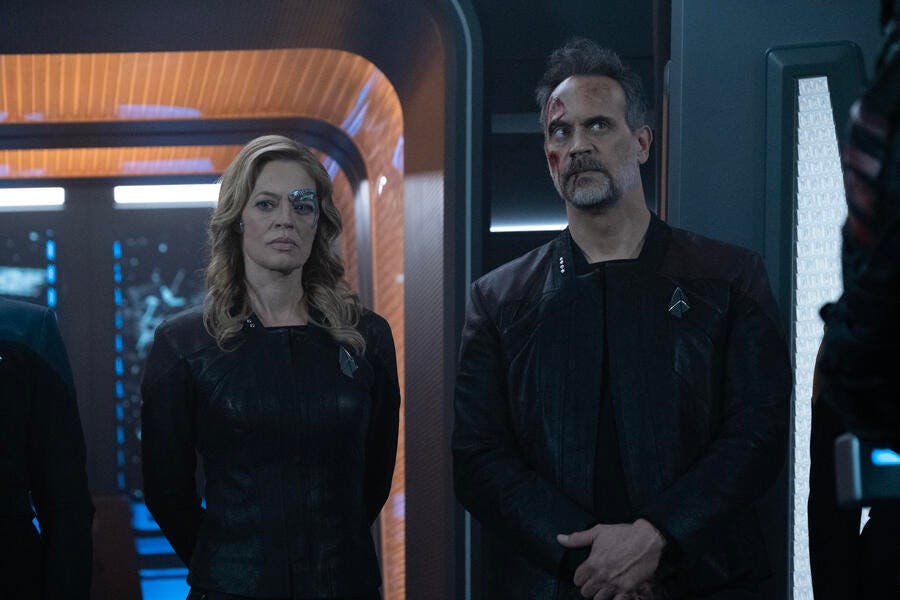
StarTrek.com
So, what can those of us living here in 2023 learn from the example of Captain Liam Shaw?
Trauma can affect anyone. It strikes unexpectedly and, because we are all unique, it can take many different forms and grab hold of us in any number of ways. When this happens, it can be extremely hard to move forward. As the example of Captain Shaw shows us, these life altering experiences oftentimes stick with a victim for the rest of their lives – changing how they may think, feel, or act in a given situation. I have firsthand knowledge and know this all too well. However, while it may not always seem possible, we do not have to allow the distresses of the past to control us. We can rise above. We can become something more. No, it’s not always going to be easy. There will be bad days. There will be setbacks, situations, and moments that may send us spiraling right back to those life changing memories. However, if we keep pushing forward, moving ahead just one step at a time, it is entirely possible to shove aside the trauma of the past and prove our worth – both to ourselves and those around us. Shaw’s example not only teaches us a valuable life lesson in controlling distress, but also reminds us that we all have something to offer. And, while the anxieties of the past may never fully go away, we can learn to live with them and continue to grow.
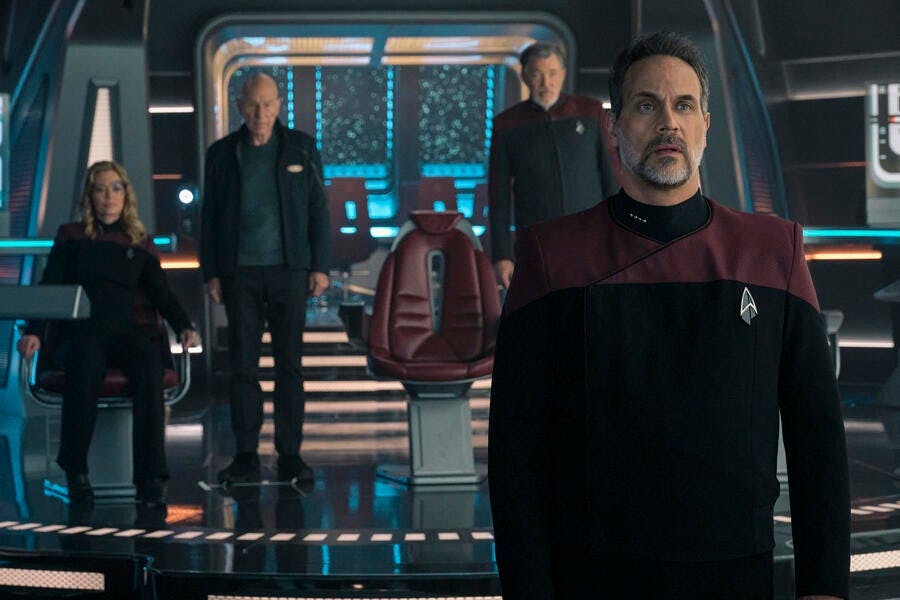
StarTrek.com
Liam Shaw had been to hell and back and, while he may have forever been altered by his experience aboard the U.S.S. Constance, he was still able to stand tall and get the job done. Yes, he was aggravating, bad tempered, and rude. However, above all else, he was also in control.
A valuable lesson courtesy of Starfleet’s biggest curmudgeon!

